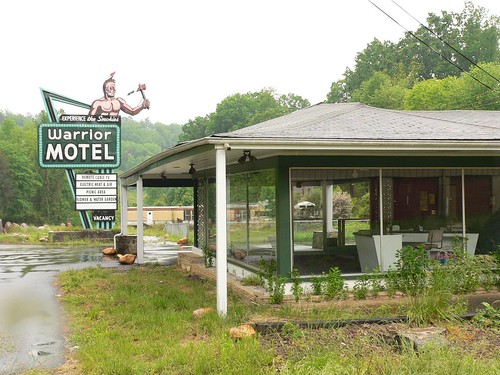From 1951 to 1965 Dr. Thomas Jugarthy Hicks began to quietly offer babies for adoption from his Hicks Community Clinic in McCaysville, GA. Quietly, because the clinic he’d been running since the mid-1940s was not a licensed adoption agency. Hicks cared for the mundane health issues of local farmers and townspeople in the front of the clinic, while performing abortions, which were illegal during that period, in the back rooms.
Law or no law, he advertised his abortion services on phone booths, bus stations and bridges. Women came by bus, car and train to pay $100 to "fix their problem." A small airstrip was built in nearby Ducktown so the prominent could fly their daughters in from Atlanta and Chattanooga for an abortion.
 His black market baby-selling ring, which may have ‘moved’ as many as 200 babies with no questions asked, relied on young, poor women from North Georgia and Eastern Tennessee. They’d come to him for an abortion, and he persuaded some to carry the babies to full term. The women would reside in the clinic for a few months, or the good doctor would provide a room for them at his farm, or in the New York Hotel in adjoing Copperhill, TN, or in his apartments in the telephone company building.
His black market baby-selling ring, which may have ‘moved’ as many as 200 babies with no questions asked, relied on young, poor women from North Georgia and Eastern Tennessee. They’d come to him for an abortion, and he persuaded some to carry the babies to full term. The women would reside in the clinic for a few months, or the good doctor would provide a room for them at his farm, or in the New York Hotel in adjoing Copperhill, TN, or in his apartments in the telephone company building.
Hicks knew he could count on word of mouth to bring in the baby buyers. The Fannin County Courthouse records list 49 babies, for example, who went to Summit County in Ohio. All the fathers who bought them worked in the Akron tire companies, except for a Cuyahoga Falls doctor who bought two babies. All the sales were arranged by a West Akron Goodrich employee who bought four babies for herself. All of them paid up to $1,000 for a baby no one could trace back to its mother.
Hicks made sure the birth certificates listed the people adopting as birth parents. The doctor kept no known records of the birth mothers, who discreetly vanished.
Thomas Hicks was no stranger to shady dealings. After getting his medical degree from Emory University in Atlanta in 1917, he moved to Copperhill, TN, but lost his medical license and served time in federal prison for selling narcotic pain killers to a veteran working undercover for the FBI.
While incarcerated, he studied a lung disease that kept copper miners from living past the age of 40.
Once out, he was hired by the Tennessee Copper Co. to treat miners. The only problem was, he filed more claims than there were miners with the disease.
After he was fired from that job, he opened up the Hicks Community Clinic in McCaysville.
Once a baby was available, Hicks wasted neither time nor words with his prospective buyers. "You have 24 hours to come or I call the next person on the list," he's reported to have said to more than one client.
Hicks warned his baby buyers not to be picky. If you told Hicks you only wanted a boy or you wanted a girl, you could forget about getting a baby.
It may never be known how many illegal adoptions were conducted by Dr. Hicks, who was stripped of his medical license in 1964, but never jailed. He was, after all, a member of the Copperhill Kiwanis and the Adams Bible Class of the First Baptist Church (to which he donated a Wurlitzer organ). He was known to give free medicine to the very poorest in town. He made house calls to those who couldn't otherwise get to his clinic.
Dr. Thomas Hicks' abortion clinic was an open secret tolerated by a town that appreciated the bulk of his medical contributions. "He didn't perform any services that anyone didn't request,'' noted local resident Marlene Matham Hardiman, who once rented an apartment from Hicks.
The court papers disbarring him made no mention of the black-market babies. The abortion charges against him were dropped, and he continued practicing for a time thereafter.
Thomas Hicks died of leukemia in 1972 at age 83. His lawyer, nurses, wife and son are dead. His only living relative, a daughter, lives in seclusion in North Carolina.
sources:www.people.com/people/archive/article/0,,20124848,00.html
freepages.misc.rootsweb.ancestry.com/~msroots/BMA/HICKS4.htm
query.nytimes.com/gst/fullpage.html?res=950CE1DE103EF930A1575BC0A961958260&sec=&spon=&pagewanted=1
immigrantships.net/adoption/hicksbabies.html
chronicle.augusta.com/stories/012098/met_LG0411-9.001.shtml
Originally blogged at Appalachian History








.jpg)










